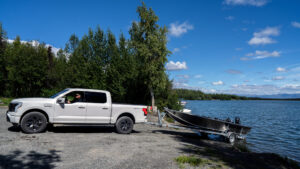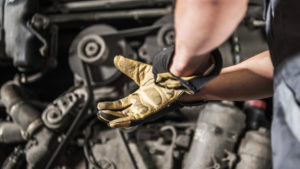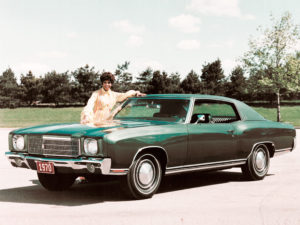Hyundai Motor Group and Rhode Island School of Design (RISD) have announced a new research collaboration to examine relationships among natural and built environments. The result of the partnership will be proposals for new directions for the future of mobility.
Hyundai has been showcasing long-range vision planning for the future in a number of areas in the last 18 months. The company is focusing on three mobility solutions: Urban Air Mobility (UAM), Purpose Built Vehicle (PBV) and Hub. The company recently exhibited their mobility display from CES inside their Korea headquarters (it’s slated to hit the road on a tour later) and showcasing a human-centric futuristic vision for San Francisco.
The meetings started out in-person in February but quickly moved to virtual experiences.Photo courtesy of Hyundai Motor Group
To better structure the research, Hyundai established a tesk force that includes four designers from their Design Innovation Group. RISD developed a new collaborative research platform created solely for Hyundai. According to a release, “four faculty members at the school leveraged their expertise to explore study areas supported by 16 students. Hyundai and RISD kept the participant size small, allowing for close collaboration, resulting in a distinctive study on the future of mobility.”
The study examined four distinctive areas of future mobility, including graphic design, industrial design, sound design, and textile design.
- Graphic Design – Posthuman Mobility: From Molecule to Machine
Faculty lead: Anastasiia Raina, Graphic Design
Responding to the evolving pandemic, this group explored the future of mobility in a microbe centric world by addressing the relationship between humans and microbes and our need to respond and adapt with agility to the new world around us. The research team developed models for collaboration with nature as an alternative to modelsinspired by nature. They focused on interspecies collaboration, cyborg nature, and designed nature, such as future mobility hubs and human identification methods utilizing augmented reality, virtual reality and machine-learning technologies.
- Industrial Design – From Anthropocene to Aerocene through Biocene
Faculty lead: Paolo Cardini, Industrial Design
In response to the increasing need for sustainable options, this research group explored alternative trajectories for the future of mobility guided by artistic, scientific, and philosophical provocations. In particular, this group utilized negative speculative narratives to explore the topic of future cities and environment in the era of UAM. Scenarios such as privacy intrusion and bird strikes were considered.
- Sound Design for Mobility
Faculty lead: Shawn Greenlee, Experimental & Foundation Studies
Drawing from the fields of bioacoustics and soundscape ecology, and experimentation in RISD’s Spatial Audio Studio, this group worked toward developing novel auditory displays and sonic experiences with embeddable computing platforms and procedural audio techniques under a common theme of “Making the Un-heard Heard” in response to the current COVID-19 environment. For example, the group studied alternative “noise” for soundless electric vehicles.
- Textile Design for Mobility
Faculty lead: Anna Gitelson-Kahn, Textiles
This research group drew from the fields of bionics and biomimicry in developing innovative textile solutions through speculative approaches and solutions gathered from a case study of the cockroach. The structure of cockroach provided insights into the safety of future mobility. Hyundai plans to further incorporate biomimicry methods into its study.
The partnership officially kicked off in February 2020 with in-person meetings. The collaborative study moved forward despite the COVID-19 pandemic with meetings and discussions held virtually.
RISD-Hyundai Research Collaborative
www.youtube.com
Hyundai and RISD will continue their partnership starting with a six-week summer research program focusing on lightweight structures and hygiene, inspired by nature. The partners plan to deepen their collaboration and form a longer-term partnership with RISD’s Nature Lab providing a foundation for living systems research.
“Hyundai Motor Group’s work with RISD is providing deep insights that will help us advance innovations in technology and design, paving the way for next-generation mobility solutions,” said Youngcho Chi, Hyundai Motor Group’s President and Chief Innovation Officer . “Through the collaboration, we’ve discovered that we have a similar vision for the future, and we’re able to develop a common language and working methods that will provide a solid foundation for a more fruitful collaboration going forward.”
“The post-COVID-19 era will require us to come up with new ways of thinking for our mobility ecosystem to evolve,” said SangYup Lee, Senior Vice President and Head of Hyundai Global Design Center. “By conducting in-depth studies with RISD about how nature copes with change, we expect to gain fresh inspiration that can lead to the development of sustainable processes, next-generation technologies and innovative designs for the future of mobility.”









